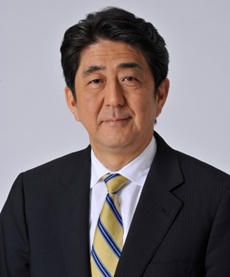Japan unveils record 2014 budget
23 Dec 2013
Japan, the world's third-largest economy and the most-indebted nation in the developed world, has unveiled a record draft budget for the next fiscal year beginning April 2014 that outlines increased spending on social security, public works, and defence.
 The coalition government has adopted the ¥96-trillion ($921 billion) budget proposal for 2014 over the weekend in Tokyo, the Japanese finance minister Taro Aso told reporters.
The coalition government has adopted the ¥96-trillion ($921 billion) budget proposal for 2014 over the weekend in Tokyo, the Japanese finance minister Taro Aso told reporters.
The government will issue ¥41.25 trillion of new bonds, compared with ¥42.9 trillion this year.
In the new budget, prime minister Shinzo Abe's government has pledged to reduce the country's primary balance deficit by fiscal 2012 and achieve a surplus by fiscal 2020.
According to some analysts, the government should resort to spending cuts and raise tax revenue to achieve the target.
The government has already approved its plan to raise the sales tax to 8 per cent from 5 per cent beginning April 2014, with a further possible increase to 10 per cent in fiscal 2015.
At the meeting of ministers and the ruling coalition, Abe said: ''The government will simultaneously achieve the revitalisation of the economy and fiscal consolidation.''
Bonds will fetch 43 per cent of next year's budget compared to 46.3 per cent this year. Tax revenue is estimated to rise to ¥50 trillion compared with ¥43 trillion this year.
Social security spending will rise to ¥30.5 trillion next fiscal from ¥29.1 trillion this year while public spending will rise to almost ¥6 trillion, an increase of ¥680 billion. Defence share will increase by ¥130 billion to ¥4.9 trillion.
The draft budget will be tabled to the Diet, the Japanese parliament, in the new year for debate.
The government's latest forecast envisages a 2.6- per cent real GDP growth in the current fiscal which will slow down to 1.4 per cent in the nest fiscal as the new tax regime comes into force.
Abe's aggressive economic policies known as ''Abenomics'' to stimulate economic growth in the sagging economy has borne fruits in the first half of the year with the country registering a 4.1-per cent growth in the January-March quarter and a 3.6-per cent in the April-June quarter.
However, for the July-September quarter, the cabinet office lowered its estimation of GDP growth to 1.1 per cent from 1.9 per cent, well below economists' forecast of 1.5 per cent. This was due to fall in exports, lower consumer spending and an almost flat capital spending.
Although, recent surveys show 3.4 per cent and 4.4 per cent growth in the next two quarters, analysts doubt whether the pace is sustainable in the subsequent quarters after the introduction of the higher sales tax in April which will have a negative impact on consumer spending.
Abe's policies aim to pull the country out of a 15-year deflation and push for a 2-per cent inflation target.
On Friday, the country's central bank maintained its record monetary easing policy, following the US Federal Reserve's decision to taper monetary stimulus. (See: Bank of Japan maintains record easing)
Government data released a fortnight ago showed that Japan posted a current account deficit of ¥128 billion in October, against a surplus forecast of ¥421 billion.
Last week, Japan posted its worst November trade deficit on record of $12.9 billion, representing a 35-per cent increase over last year. (See: Japan posts worst November trade deficit on record)
According to finance ministry data, the country's public debt burden at the end of June has crossed a whopping ¥1 quadrillion ($10.5 trillion) and is projected to hit 230 per cent of GDP by 2014, the highest compared to any other developed nation.
The country's net government debt is the second-highest in the developed world at 140 per cent of GDP, after Greece, which has a debt of 173 per cent, according to the IMF. The lender expects Japan's net government debt to rise to 148 per cent of GDP over the next five years or even higher if the economy performs badly.


















